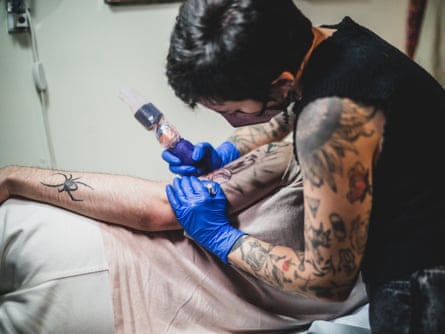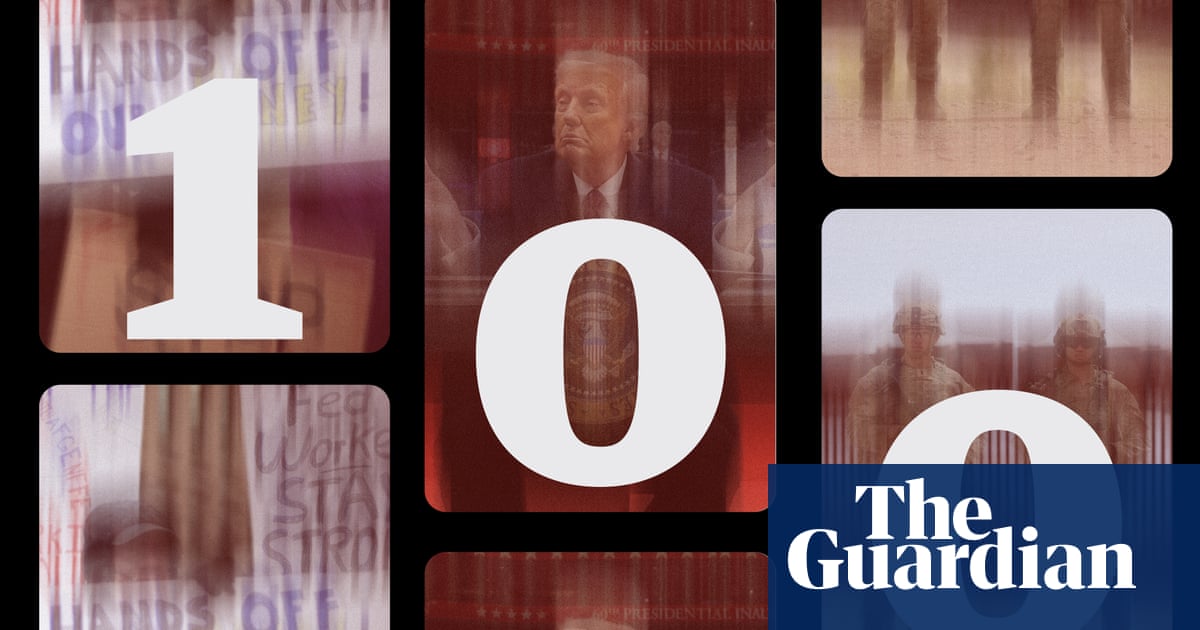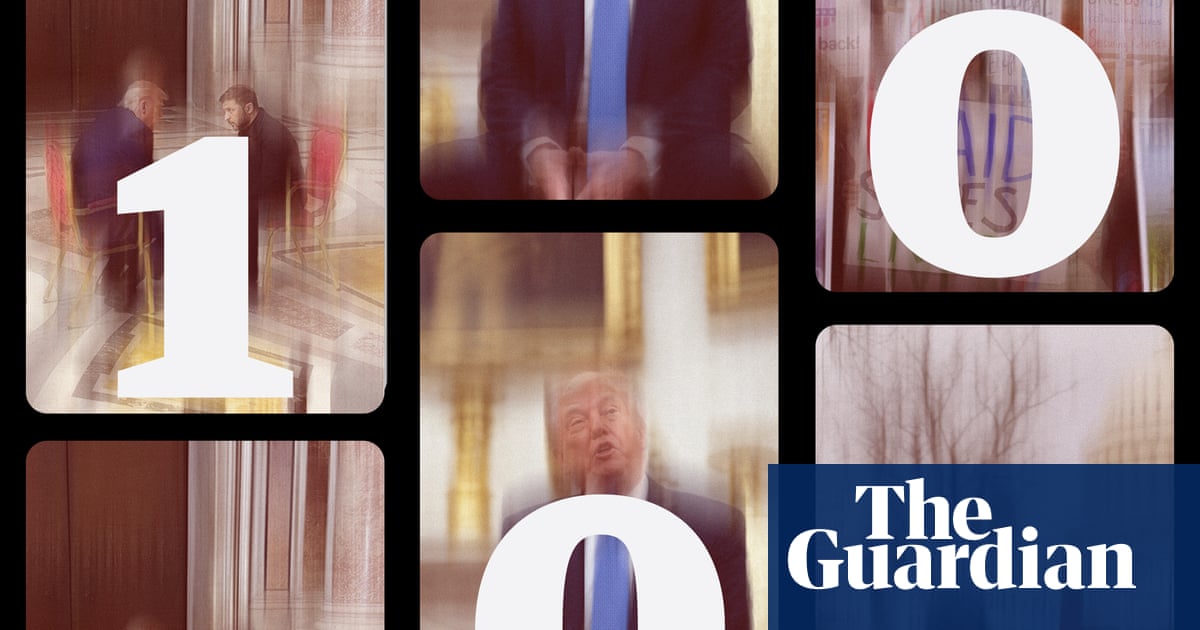Tattoos are everywhere nowadays – peeping out of shirtsleeves during office meetings, adorning the shoulders of neighborhood baristas. Nearly a third of Americans are tattooed, according to the Pew Research Center. And more than half of lesbian, gay or bisexual Americans are inked, according to data from the same organization.
Tattoos can discreetly signal identity – for example, lesbians in the 1940s got nautical stars inked on their wrists that were cleverly concealed with wristwatches during the day and on display at night. But the tattoo industry isn’t always welcoming towards the LGBTQ+ community.
“When I got into tattooing, I had a sense that conventional spaces would be really unfriendly to me, and my experiences of getting tattooed in conventional shops were intense or odd,” said Geo Mccandlish, a 31-year-old trans artist who began tattooing in 2017 and who now runs their own shop, Fruit Camp, with their business partner, Emi Lynn Holler, also 31. Mccandlish got their first tattoo in a shop at age 20, and said the artist who oversaw the process was difficult to work with. When Mccandlish asked about pain management, their concerns were brushed aside and they were merely told to drink a beer.
Holler said that some of these issues derive from the fact the industry is dominated by men. Cutting your teeth as a newcomer often means vying for competitive, unpaid shop apprenticeships in an old boys’ club – making it difficult for queer and trans artists to break into the tattooing world. As a result, LGBTQ+ clients can have trouble finding artists who respect their artistic vision, identities and bodies.

Mccandlish and Holler met while living and working at Bell Foundry, a cooperative art space in Baltimore. Holler gave Mccandlish their first tattoo machine and started teaching Mccandlish about tattooing as both an artistic and professional practice. After the city shut down Bell Foundry in 2016, the pair wanted to combine the community-oriented and skills-sharing ethos they learned with a sustainable work model. But more than anything, they envisioned a tattoo shop where queer and trans clients would not only feel welcome, but also one where all artists could find support and earn fair compensation.
Fruit Camp officially opened its doors in 2020 in Baltimore’s Remington neighborhood. When coming up with a name for their business, Mccandlish said they “wanted something clearly unintimidating, clearly friendly, and something obviously gay”. The pair landed on Fruit Camp.
Currently, there are five working tattoo artists in the shop space, which runs by appointment, with the occasional day designated for walk-ins. Both Mccandlish and Holler work four days a week – three for tattoo appointments and one for administrative work – and Holler says they haven’t had to work another job to make ends meet since Fruit Camp went into business.
“Tattooing has been the best job I’ve ever had in my life, for sure. Best paid, best hours, funnest experience by far,” McCandlish said.
What did it take to get your business off the ground?
Mccandlish: We decided we didn’t want to take out any debt to open the business. We saved $5,000 combined and that was our entire amount of startup capital. We also got a grant from a local creative accelerator program which provided [an additional] $5,000 and legal help in establishing a business entity.
Holler: Then, we really looked for a rental space that was as move-in ready as possible, so we didn’t have to make any large remodels. The building is a rowhouse shopfront on a busy corner where neighbors often kick it on the stoop. We did a lot of things ourselves. A friend upholstered our front cushions, we painted the window sign ourselves.
Mccandlish: My dad came and helped run electrical and [install] exit signs. We also traded tattoos for a lot of labor. We traded tattoos for our custom front desk. We traded tattoos for the installation of the sinks. It’s a very tradable skill!
You run Fruit Camp differently than most private studios or walk-in shops. Can you talk about your business model?
Mccandlish: There are two big models in the industry. Booth rentals are stable, usually above-cost prices artists pay to their shop each month or week. Commission-based models charge artists a percentage, usually 30 to 50% of their income.
Holler: We charge artists a monthly fee that is the calculated cost of running the space, divided by the number of people in the shop. We run Fruit Camp at cost so that the artists, including ourselves, can keep as much money from tattoos as possible. As co-owners, we also pay this monthly fee. The way that the shop space itself makes any profit is by hosting guests artists from out of town.
Mccandlish: Another aspect that is important to us is full financial transparency. We have a document with exact cost breakdowns and where the money goes. The profits made from guest artist fees do not go to us as owners. It goes to improvements to the space and emergency funds. We’ve used these funds to cover people when they’re short on rent or are experiencing illness or an emergency. The cushion is shoestring, but it is there.
How would you say you fit into the local community?
Holler: We went in with the goals of making a great place to work and a great place to get tattooed. There was room for us to exist in Baltimore. There are many queer and trans tattooers here, but there wasn’t yet a specific space – one that was outspoken about being a space that is dedicated to queer and trans people.

 8 months ago
8 months ago
 (200 x 200 px).png)








 English (US) ·
English (US) ·